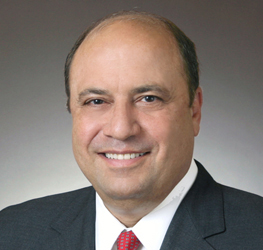Economy: Florida’s Unemployment Rate Reaches 8.6 Percent
On March 6, 2009, the Bureau of Labor Statistics of the U. S. Department of Labor and the Florida Agency for Workforce Innovation released recalculated state unemployment data for January 2009. Florida’s seasonally adjusted unemployment rate was 8.6 percent. The January unemployment rate reflected a one-percentage point increase over the revised December 2008 unemployment rate and a 3.6-percentage-point increase over the January 2008 unemployment rate.
The January 2009 Florida unemployment rate was one-percentage point higher than the U.S. unemployment rate of 7.6 percent.
The counties with the lowest unemployment rates were Liberty (5.5 percent), Alachua (5.8 percent), Monroe (5.9 percent), Leon (6.0 percent), and Union (6.3 percent). The counties with the highest unemployment rates were Flagler (14.2 percent), Hernando (12.4 percent), Hamilton and St. Lucie (12.0 percent each), Marion (11.6 percent), and Lee (11.5 percent). Twenty counties had unemployment rates of 10 percent or higher.
State Budget: Governor Charlie Crist Urges Legislature to Spend All Available Stimulus Funds
The 60-day regular session of the Florida Legislature convened on March 3, 2009. The first day of the session ended with Gov. Crist’s State of the State address to a joint meeting of the House and Senate. Gov. Crist used the speech to urge legislators to spend all of the approximately $12.2 billion in federal economic stimulus funding that will be available to the state.
Some legislators expressed skepticism. Rep. Dean Cannon (R-Orlando) said that taking all of the federal stimulus money “may leave us in a worse position two or three years from now ….The most important thing we have to do right now is to do no harm.” House Republicans elected Rep. Cannon as their Speaker-Designate for the 2010 – 2012 legislative biennium on March 2, 2009.
Rep. Larry Cretul (R-Ocala), who was formally elected as Speaker of the House on March 3, 2009, also was skeptical, saying, “I love optimism, but I have also been around long enough that sometimes, even optimism is not necessarily the solution to the problem.”
The reaction of legislative Democrats appeared to be mixed. Sen. Dan Gelber (D-Miami Beach) said that Gov. Crist’s proposed budget is “not tethered to reality.” However, Rep. Geraldine Thompson (D-Orlando), who delivered her party’s response to the State of the State address, supported the full use of stimulus funds, saying that “using these economic recovery funds will be a win for everyone — especially our children, the uninsured, and Floridians worried about their jobs.”
Asked whether the governor’s speech was realistic, Senate Committee on Ways and Means Chair JD Alexander (R-Winter Haven) replied “We’ll know next week.” Presumably, Sen. Alexander was referring to the March 13, 2009 meeting of the Consensus Revenue Estimating Conference, which will provide a new general revenue projection for the 2009 – 2010 budget year. Sen. Alexander also noted that declining property values, down approximately 12 percent from the prior year, will reduce local funding for public schools by $840 million. The decline in local tax revenues could affect Gov. Crist’s proposal for a $183-per-student increase funding for public schools.
Property Insurance: State Farm Florida Appeals Withdrawal Order
On March 6, 2009, State Farm Florida Insurance Company (State Farm Florida) filed an appeal of the order from Florida Insurance Commissioner Kevin M. McCarty that imposed a series of conditions on the company’s plan to withdraw from the Florida market. State Farm Florida had announced a two-year withdrawal plan on January 27, 2009. On February 13, 2009, the Office of Insurance Regulation issued an order that rejected major elements of State Farm Florida’s withdrawal plan and imposed new conditions on the company.
In appealing the order, State Farm Florida argued that the commissioner’s order went beyond the powers of his office and threaten State Farm Florida policyholders, stating, “The Conditions proposed by the office would preclude the orderly and effective execution of the withdrawal plan, significantly enhance the risk to State Farm Florida’s policyholders and the public and are tantamount to prohibiting withdrawal ….”
At a meeting of the Senate Committee on Ways and Means, key members of both parties criticized Commissioner McCarty for his office’s treatment of State Farm Florida and related issues. Committee Chair Alexander commented that many property owners would prefer to continue to do business with State Farm Florida, even at much higher rates, than with a start-up company or Citizens Property Insurance Corporation. Sen. Alfred “Al” Lawson, Jr. (D-Tallahassee), the Senate Minority Leader, urged the Commissioner McCarty to devote his efforts to getting State Farm Florida to remain in the marketplace. “I think what you people have done is a travesty,” Lawson said.
An Office of Insurance Regulation spokesperson later said, “This is State Farm’s plan. We did not make them leave. This was their decision.”
Transportation: Central Florida Rail Clears a Major Hurdle
A proposed Orlando-area commuter rail project passed its first legislative test on March 4, 2009, when Senate Bill 1212 passed the Senate Transportation Committee by a 6-3 vote. The proposal, which failed in the 2008 legislative session largely because of liability issues, involves state acquisition of a 61-mile rail corridor, creation of a commuter rail system to be known as “SunRail,” and freight rail upgrades and rerouting. The most controversial element of the 2008 legislation, sovereign immunity for the rail operator, has been replaced with a provision requiring $200 million in liability insurance coverage.
Sen. Paula Dockery (R-Lakeland) led the opposition to the bill in the Senate Committee on Transportation, arguing in part that the bill would result in an increase of freight rail traffic through Lakeland. The bill is strongly supported by Orlando and Orange County legislators and local officials, with the apparent exception of Sen. Gary Siplin (D-Orlando), who voted against the bill in committee.
Taxation: Both Houses Pass a Bill to Fix Florida Corporate Income Tax Glitch
Florida legislators have moved quickly to correct a problem with 2008 legislation that inadvertently imposed costs on Florida corporate income taxpayers. Florida annually adopts legislation that “piggybacks” federal income tax provisions onto the Florida tax. The 2008 piggyback legislation attempted to ensure that federal accelerated depreciation provisions enacted in 2008 would not reduce Florida income tax revenues. As enacted, however, the Florida law required increased Florida income tax payments from taxpayers who took advantage of the federal accelerated depreciation provision. Recognizing that this result was not intended, and acting on the assumption that the Legislature would address the issue, the Florida Department of Revenue has not been enforcing the 2008 provision.
On March 3, 2009, the first day of the 2009 legislative session, the Senate passed Senate Bill 1112 to correct the corporate income tax glitch by a 39-1 vote. Two days later, the bill passed the House by a 116-0 vote.
Public Affairs News Alert is part of our ongoing commitment to providing up-to-the-minute information about pressing concerns or industry issues affecting our clients and our colleagues. If you have any questions about this alert or would like to discuss these topics further, please contact your Foley attorney or any of the following individuals:
|
Marnie George Michael P. Harrell Robert H. Hosay |
Jonathan P. Kilman Thomas J. Maida Leonard E. Schulte |

